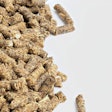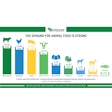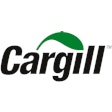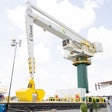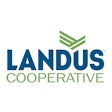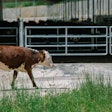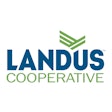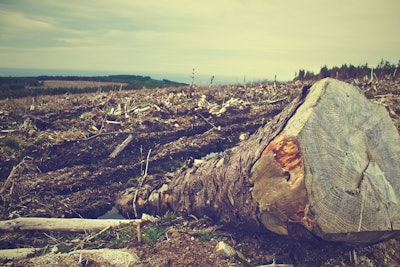
A new Mighty Earth report links Bunge to 11,351 hectares (27,869 acres) of recent deforestation in the Cerrado savannah in Brazil prompting some major European supermarkets to investigate and one pork producer to drop the grain trader.
The Cerrado is a vast tropical savannah of over 200 million hectares (493,362,305 acres) in central Brazil and has a huge carbon sink storing an estimated 13.7 billion tons of carbon in its soil and through its deep roots system. The report, in partnership with Repórter Brasil, Instituto Centro de Vida (ICV) and Deutsche Umwelthilfe (DUH), comes as figures reveal record rates of deforestation in the Cerrado.
Supermarkets in Europe, including Carrefour and Casino in France, Ahold Delhaize and Jumbo in the Netherlands and Aldi South from Germany, have launched investigations in response to the report. Others, such as France’s biggest pork producer, Cooperl, have dropped Bunge from their soy supply chains.
The EU Deforestation Regulation (EUDR), which goes into effect June 29, currently fails to offer legal protection for three quarters of the Cerrado, said the report. Under the EU regulation, commodity traders will have to prove that products such as soybeans and palm oil destined for the EU market are not linked to the conversion of forests.
Bunge is main supplier of soy animal feed to EU meat industry
With annual revenues of $67 billion, Bunge is the main supplier of soy animal feed to the meat industry in the European Union (EU) and is the trader with the greatest deforestation risk linked to soy in the Cerrado, after ADM and Cargill, said Mighty Earth.
Bunge ships large amounts of soy to Europe to feed animals destined for the meat aisles of major supermarkets in France, Spain, Germany and the Netherlands – largely beef, poultry, pork and dairy products.
Mighty Earth report findings:
- Bunge recently bought soy from three farms responsible for 11,351 hectares (27,869 acres) deforestation in the Cerrado cleared after 2021.
- Five of the 100 companies Mighty Earth and DUH contacted confirmed links to soy from Bunge in their meat supply chains: Carrefour, one of the largest retailers in world; LDC, the largest poultry meat group in Europe; retailers Les Mousquetaires and Super U in France; and Jumbo in the Netherlands.
- Retailers Carrefour and Casino in France, Ahold Delhaize and Jumbo in the Netherlands and Aldi South in Germany confirmed they are investigating the deforestation cases highlighted in the report and have contacted Bunge.
- France’s biggest pork producer Cooperl say they have stopped sourcing soy from Bunge.
- Many other EU-based retailers, meat producers and restaurant groups surveyed by Mighty Earth fail to publicly reveal their links but are very likely to buy soy animal feed or soy-based products from Bunge, too.
- Mighty Earth partner AidEnvironment detected another five cases linked to an additional 14,598 hectares ( 36,014 acres ) of deforestation that took place on soy farms in the Cerrado in early 2023, in high-risk areas where Bunge is the leading soy exporter.
- Bunge confirmed to Mighty Earth that it has recently sourced soy directly from four of the eight farms named in our investigation – although it said the deforestation was legal under Brazilian law and failed to provide any further details.
- Bunge confirmed to Mighty Earth that it does not have a deforestation cut-off date of 2020 and will accept legally deforested, deforestation-risk, or deforestation-linked soy in its supply chain until 2025.
Bunge "does not source soy from illegally deforested areas"
For its part, Bunge said it does not source soy from illegally deforested areas and is committed to deforestation-free value chains in 2025.
"Bunge's commitment to be free of deforestation and native vegetation conversion in the value chains in 2025 is a central part of the company's business strategy and planning," a company spokesperson told Feed & Grain in response to the report.
"Bunge does not source soy from illegally deforested areas and has maintained strict control over socio-environmental criteria in our operations," the spokesperson continued. "We use cutting-edge satellite technology to monitor priority areas in South America – over 16,000 farms, covering more than 20 million hectares. As a result of our efforts, over 97% of our soybean volumes from Brazil are deforestation and conversion-free. This shows that we are very close to reaching our goal of zero deforestation in 2025."
Bunge said its monitoring is capable of identifying changes in land use and soy planting on each of the farms it sources from and captures any new cleared lands in the monitored regions. When monitoring identifies legal land clearance, Bunge engages with farmers according to its step-by-step process described in its Sustainability Report on page 37, including farms mentioned in Mighty Earth’s report.
"If the result of the process is not positive, we block trade with the property," said the spokesperson. "After our 2025 deforestation-free commitment, farmers that have planted soy over recently cleared lands will be excluded from the supply chain. This continuous engagement approach ensures that farmers understand the requirements and are thus incentivized to work toward deforestation-free supply. If farmers accelerate deforestation before 2025, they will lose access to certain incentives (technology, financial incentives, partnerships, certification, and other initiatives)."
Bunge says it is fully aware of the December 31, 2020 cut-off date specified in the EUDR and will take steps to ensure compliance with it and other applicable laws.
"As noted by Mighty Earth, the entire Cerrado does not currently fall within the scope of the EU Deforestation Regulation, thus the importance of Bunge’s industry-leading voluntary efforts, and our supply chain having attained 97% deforestation-free status and critical closing in on the remaining 3% over the next 18 months, is underlined," explained the spokesperson. "We fully recognize the importance of the Cerrado biome and took the initiative in addressing deforestation there, without waiting for regulators to act."
Bunge noted the majority of its sourcing in Brazil is direct and it has already achieved 100% traceability and monitoring, audited every year by a third-party. Bunge also offers its Sustainable Partnership Program that is designed to support grain resellers in the adoption of socio-environmental verification systems, traceability and monitoring, enabling them to improve visibility into their supply chains.
"Bunge reiterates its confidence in the socio-environmental verification and monitoring systems that it has structured over the last few years and remains committed to promoting leading standards and to develop practical and sustainable approaches," added the spokesperson. "This is part of our strategy, and we remain committed to this journey."







